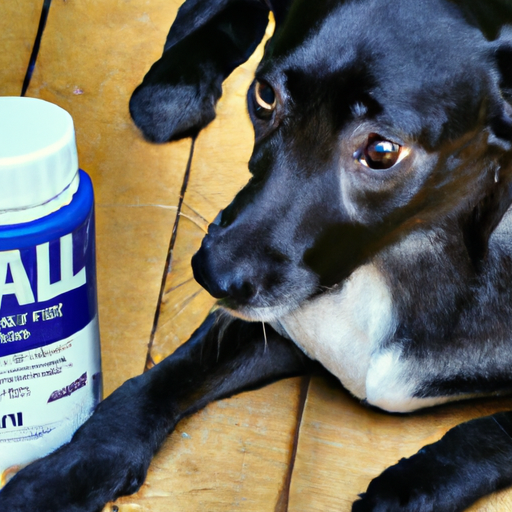How Long Are Dogs Pregnant?
Get ready to embark on a journey understanding the pregnancy period of dogs. Throughout this article, you’ll enrich your knowledge on this interesting topic, and you’ll learn about the typical duration of a canine pregnancy and the factors that can influence it.

Understanding Canine Pregnancy
Before diving into the question “how long are dogs pregnant”, let’s get to know more about canine reproduction and why understanding your dog’s pregnancy is crucial.
The process of canine reproduction
Like humans, dogs reproduce sexually with the female dog carrying the puppies in her womb for approximately nine weeks. After this, she gives birth to her puppies, which may vary in number depending on the breed and size of the dog.
The significance of understanding your dog’s pregnancy
Knowing the length of your dog’s pregnancy can help ensure that she receives the proper care she needs during this time. It also helps you prepare for the arrival of puppies and manage potential health risks.
Different Stages of Pregnancy in Dogs
A dog’s pregnancy is divided into three main stages, each characterised by particular symptoms and changes.
The early stage: first and second weeks
In the early stage, fertilisation occurs and the embryos begin to develop. There are few noticeable changes during this time, although some dogs may show signs of pregnancy such as a decrease in appetite and energy.
The middle stage: third to sixth weeks
The middle stage of a dog’s pregnancy is when most of the growth and development occurs. You will begin to notice changes in your dog’s behavior, and her belly might start to swell.
The late stage: seventh to ninth weeks
In the final stage of pregnancy, the puppies are almost fully formed and ready for birth. Your dog may start looking for a safe place to hide, often showing signs of nesting.
Signs of Pregnancy in Dogs
Just like humans, dogs also show certain signs when they are pregnant. These can be divided into behavioral and physical changes.
Behavioral changes in pregnant dogs
Behavioral changes may include a decrease in energy and appetite, increased affection, or even signs of depression.
Physical changes in pregnant dogs
Physical symptoms of dog pregnancy might include an increase in weight, swollen belly, and changes in nipple color and size.
Health Considerations during Dog Pregnancy
A balanced and healthy diet is critical during your dog’s pregnancy. You may need to adjust your dog’s diet based on recommendations from your vet.
Nutritional needs of a pregnant dog
In general, pregnant dogs need more calories, protein, and calcium in their diet to support their puppies’ growth and maintain their health.
Possible health risks to pregnant dogs
Pregnant dogs can face risks like eclampsia, miscarriage, and infections. Regular veterinary check-ups can help in early detection and treatment.

Visiting the Veterinarian during Pregnancy
Regular visits to the vet are crucial during your dog’s pregnancy.
Routine check-ups: their importance and frequency
Routine check-ups can help monitor your dog’s health and the growth of the puppies, allowing for early detection of any complications.
Ultrasounds and other medical tests for pregnant dogs
Medical tests like ultrasounds can give a clear picture of the puppies’ growth and count. They can also confirm whether the pregnancy is proceeding normally.
The Birth of Puppies: What to Expect
Knowing what to expect during the birth can help you prepare and keep your dog safe and comfortable.
How to prepare for the arrival of puppies
Preparing a maternity area, having emergency contacts ready, understanding the signs of labor are a few ways you can prepare for your dog’s delivery.
Signs that your dog is about to give birth
Dog labor signs include restlessness, panting, nesting behavior, loss of appetite, and visible contractions.
Post-Pregnancy Care for Dogs and Puppies
Proper post-natal care is critical for the health of your dog and her puppies.
Caring for a mother dog after birth
Provide a quiet and comfortable environment, make sure your dog has access to food and water, and monitor her health closely.
Providing care to newborn puppies
Newborn puppies need to feed frequently and be kept in a warm environment. Monitor their growth and behavior closely, and consult a vet if you notice anything unusual.
Common Questions about Dog Pregnancy
There are many questions pet owners have when it comes to dog pregnancy.
When is the right time to breed a dog?
Typically, dogs reach sexual maturity between 6 to 12 months, but it is safer to wait until they are a little older. Your vet can provide breed-specific advice.
How many puppies can a dog have in one litter?
This largely depends on the breed of the dog but ranges from one to twelve puppies in a litter.
Can a dog experience postpartum depression?
Yes, dogs can suffer from postpartum depression. Signs include lack of appetite, lethargy, or even aggression toward the puppies.
Handling Complications During Dog Pregnancy
Complications can occasionally arise during pregnancy, and it’s important to recognise these early.
Identifying complications during pregnancy
Complications include abnormal discharge, prolonged labor, severe discomfort, and sudden behavioral changes.
Ways to deal with pregnancy complications
If you notice any abnormalities, it is critical to seek immediate veterinary care.
Conclusion
The significance of knowing your dog’s pregnancy duration
Understanding your dog’s pregnancy duration and being aware of the changes she undergoes can contribute to a healthy pregnancy.
Promoting a healthy pregnancy for your dog
Remember to provide proper nutrition, regular vet check-ups, and adequate care – before, during, and after her pregnancy. Your love, care, and support can ensure the birth of healthy puppies.
And that, my friend, is the full picture on how long dogs are pregnant, and how to navigate this exciting time. Now, you are better equipped to handle your canine’s pregnancy journey. Happy parenting!






